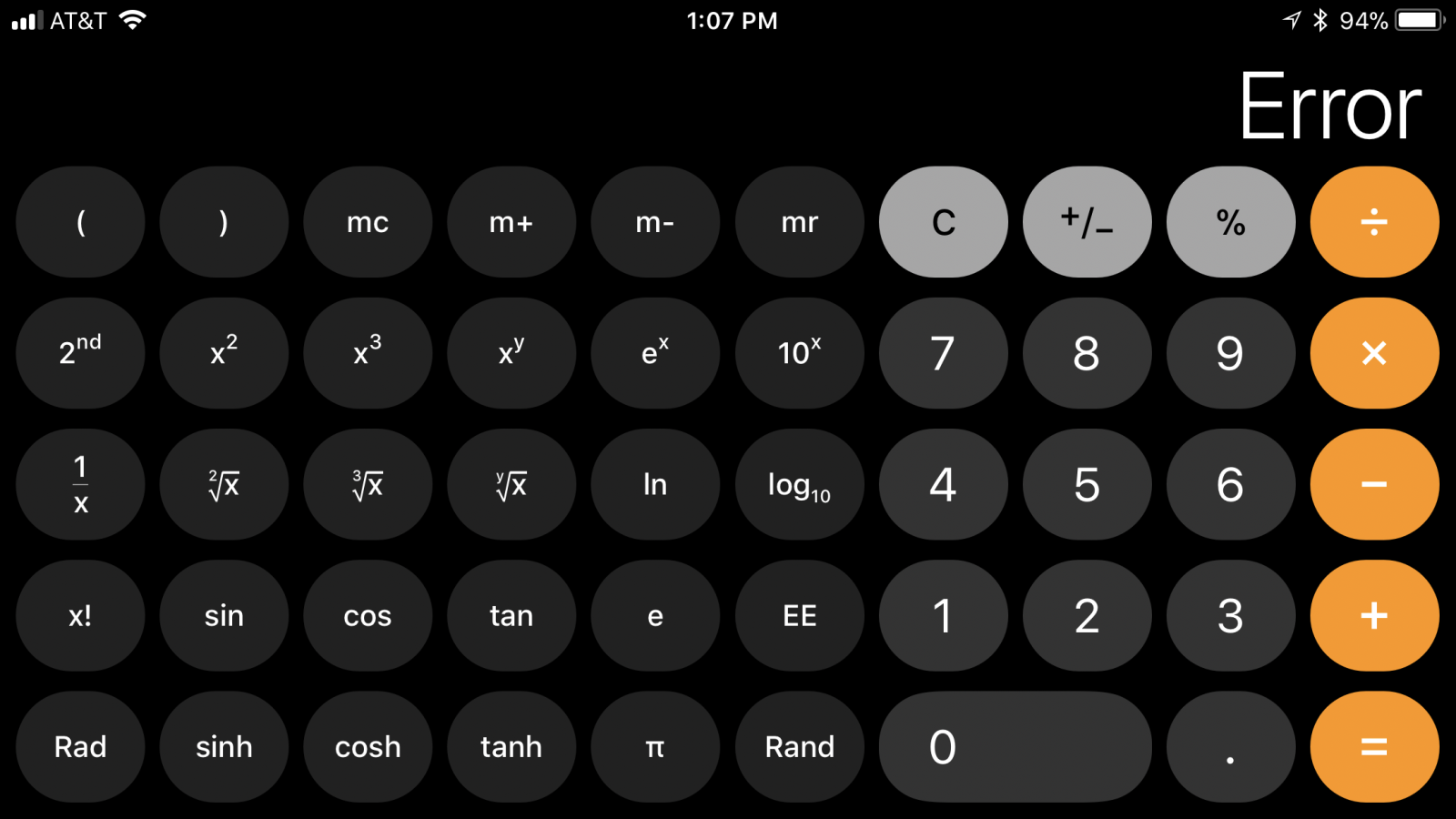This is a strange one.
Not too long ago, Quartz reported on an unfortunate gaffe by Apple in the calculator app in the latest version of iOS. If you typed in “1+2+3=” fast enough, you would get a wrong answer (i.e. not 6). In some cases, you would get a very wrong answer.
Apple did finally get around to fixing this bug about a week after the article. What’s disturbing is just how the botched calculator came to be to begin with. Per the article:
According to a group of eagle-eyed iPhone users on Reddit who spotted the issue, it seems to be because of a new animation in the calculator app, where a button briefly fades to white when you press it. The result is that if you press an operator button (i.e., the plus sign) before the short animation finishes, the app ignores it. So, 1 + 2 + 3 accidentally gets read as 1 + 23.
Translation: Apple cares more about the flashy and purely cosmetic animation than the calculator actually performing its intended function. This is wholly unacceptable for any company involved in devices intended to be used for functional computing. A calculator app is not a laser light show with numbers on it. It is a tool, much like the dedicated devices it is modeled after, which is relied upon to give accurate results when used. Screw up something like the calculator, and you (quite justly) lose the trust of a good number of your users, something which is not very easy to regain.
The good news is that Apple is fixing it. The bad news is that it apparently took Apple two minor iOS revisions to recognize the issue and get a fix out there. Quite disturbing to me. Yes, there are third-party calculator apps, but one should not have to resort to a third-party app for something like this.
I can only imagine what’s next: a phone app that dials the wrong number if you enter it too quickly?

